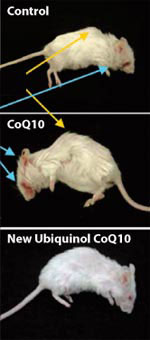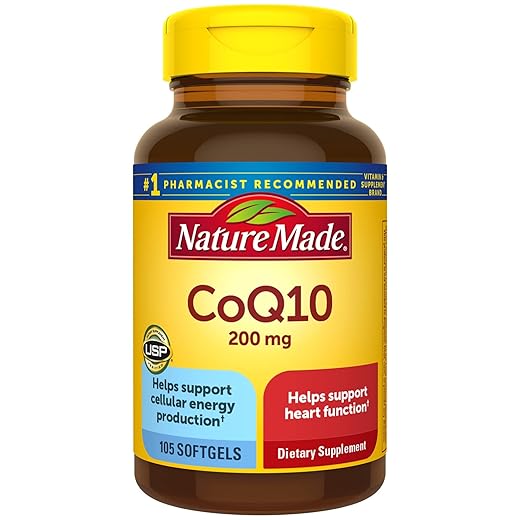 A good CoQ10 supplement is a mainstay of any anti-aging regimen. It’s usually touted for its positive effects on heart health, but in actuality CoQ10 is useful throughout the body on a cellular level. It is vital in the creation of ATP (adenosine-5-triphosphate). ATP is the main source of energy for cells. Biological processes we take for granted are possible because of it.
A good CoQ10 supplement is a mainstay of any anti-aging regimen. It’s usually touted for its positive effects on heart health, but in actuality CoQ10 is useful throughout the body on a cellular level. It is vital in the creation of ATP (adenosine-5-triphosphate). ATP is the main source of energy for cells. Biological processes we take for granted are possible because of it.
CoQ10 is also a powerful antioxidant capable of zapping the free radicals that cause age-related decline. Besides heart health, its ability as an antioxidant is mentioned countless times by the media and in medical journals.
Functions: Ubiquinol vs Ubiquinone
Both forms of CoQ10, ubiquinol and ubiquinone, are contained in the body. Ubiquinone is used within the mitochondria to produce energy for the cell. Ubiquinol works outside of the cell by regenerating deactivated antioxidants such as vitamin C and vitamin E. Once the process is complete ubiquinol is transformed into ubiquinone. It then goes to work at producing energy.
Due to the processes explained above ubiquinone-based supplements only do half the job that ubiquinol does. Ubiquinol has the ability to recycle otherwise used up front line antioxidants, making it a vastly superior solution to the problem of oxidative damage.
CoQ10 Supplement Facts
Most commonly ubiquinone is used by manufacturers. Until very recently it was the only game in town. It’s inexpensive, thus enabling supplement makers to keep costs low.
In 2006, Kaneka QH became the first form of supplemental ubiquinol that is identical to the form produced naturally by the body. The only difference is the molecule has two extra hydrogen atoms. However, this simple addition makes it far more effective as a free radical scavenger.
Ubiquinol-based supplements cost about four times as much as a typical ubiquinone-based brands per milligram. With such a large discrepancy in price, people often get sceptical about if it is worth it.
 Ubiquinol-fed Mice Stay Youthful in Study
Ubiquinol-fed Mice Stay Youthful in Study
Based on the results of recent animal studies, the answer is a resounding “yes.” Researchers were shocked when they compared mice divided into three categories. The first group of mice (the control group) were given nothing to supplement their regular diet. The second group was given ubiquinone, the traditional supplemental form of CoQ10. The final group was given ubiquinol capsules.
Before the mice hit middle age, a difference was noticed between the three groups. The symptoms of old age were just beginning to take effect for mice in the control group. The mice given ubiquinone and ubiquinol stilled looked youthful.
Amazing results manifested when the mice all reached old age. The control group looked ghastly and was largely inactive. The group that was given ubiquinone was in better shape but still had characteristics of old mice; the coat was yellowish and hair loss was obvious. The mice that were given ubiquinol had a youthful coat and didn’t look like old mice at all! On top of that, they were far more active than the mice in the two other groups.


Conclusions
Based on the results of the study it appears ubiquinol-based supplements are the way to go. The only bummer is that emulating the study as a human isn’t cheap. You’ll need to take 200-300mg of ubiquinol to get results this drastic.
The good news is that supplementing with CoQ10 gets exponentially more important as you age. So if you failed to take any ubiquinol supplements before age 40, you’ll still get impressive results if you start later in life. Of course the earlier you start, the better, as this prevents damage from occurring in the first place. As time goes on, the supplementation will only continue to be more and more significant to your quality of life.